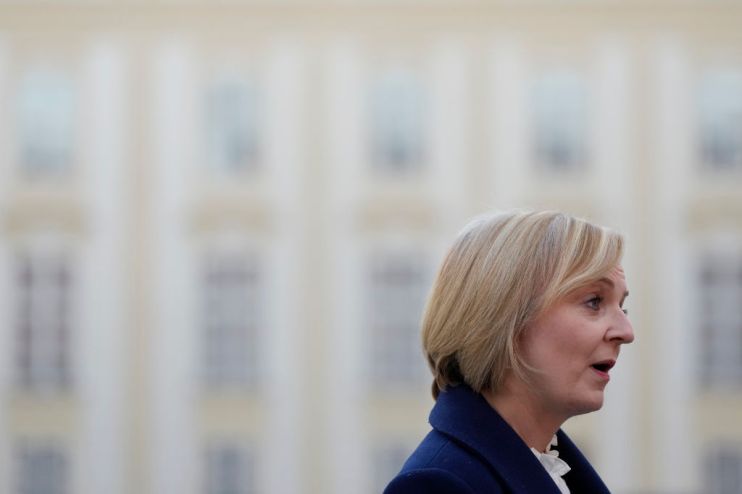Truss has picked the wrong fight: the problem is inflation, not lack of growth

In her speech to what was left of Tory party conference, Liz Truss promised that her priority was “growth, growth, growth”. The events of the past week have underlined why that is the wrong priority, at the wrong time, by the wrong prime minister.
Much has been made about the prime minister’s ideological convictions but there’s been little attention to her woeful grasp of timing. Whatever you say about David Cameron or Boris Johnson, they sought to define the start to their premierships by action on the key issue of the day, be that the aftermath of the financial crisis or the parliamentary stalemate over Brexit. Truss shares with Theresa May the odd belief that having secured the keys to Downing Street at a moment of crisis, she deserves the freedom to instead indulge her own personal hobby horses.
The urgent issue facing Britain now is not a lack of economic growth. Indeed, until recently the problem had been quite the reverse: the economy was growing by more than it could handle, due to both a surge in demand and a series of supply shocks. If economic growth has slowed, it is a positive consequence of fiscal and monetary decisions designed to combat the high inflation eating away at people’s living standards, businesses’ profit margins, and public services’ budgets.
Jacob Rees-Mogg noted with pleasure that the International Monetary Fund said the new government’s policies will increase growth next year. But the Business Secretary seems unable to grasp that the same organisation also warned that Truss’ government had undermined the battle to get inflation under control, the urgent problem they actually should be addressing.
The government has not bought that extra growth by taking the unpopular decisions it keeps talking about. There was nothing in Kwasi Kwarteng’s statement last month that should have been unpopular with the people affected; after all, everyone likes having their taxes cut.
Indeed, the Chancellor went out of his way to reassure people that they wouldn’t have to worry about the tax cuts being paid for by spending cuts, a belief that was clearly part of the Treasury view he and Truss sought to define themselves against.
Instead, the largest package of tax cuts in fifty years was meant to be the sugar that made the actual medicine the British economy needs go down. Because ministers are correct in saying that beyond the current crisis, we need structural reform so that the British economy can handle more economic growth rather than increased economic activity being cannibalised by higher prices. Moves to build a truly bigger and more productive economy will involve not just complicated technical changes but winning the argument against those who have other priorities – such as protecting the natural environment, reducing immigration, or protecting house prices.
In short, the government can’t just throw together a collection of tricks or treats in the fortnight until the Chancellor’s Halloween statement. It should be dealing with the immediate crisis posed by high inflation.
And yet after six weeks in office all that the government has done is make the problems posed by inflation worse. Above all, their tax cuts have blown apart even the diffident tightening of the public finances ushered in by Rishi Sunak, borrowing billions to give people and businesses more money to outbid each other for goods and services.
And then there is spending. When challenged by Keir Starmer in the Commons yesterday, Liz Truss stood by remarks she made during her Tory leadership campaign, repeating there would be no spending cuts. But she hasn’t just refused to cut public spending – she has massively increased it by going larger and longer than what the opposition proposed with regards to energy subsidies. And all the while she hasn’t made any effort to pay for a package that will ultimately cost more than £100bn pounds. She won’t even let officials advise people on how to reduce energy consumption.
Truss says she’ll take the fight to think tanks and podcasters, but let’s be real: she couldn’t fight her way out of a paper bag.
She lacked the common sense to tell her party their dreams for tax cuts would have to wait until the inflationary crisis had been resolved. She also lacked the courage to tell the public that everyone’s energy bills couldn’t be subsidised for the next eighteen months without either tax rises or spending cuts elsewhere. And in due course we will see she lacks the competence to shepherd complicated and difficult reforms through a rightfully distrustful parliament.
